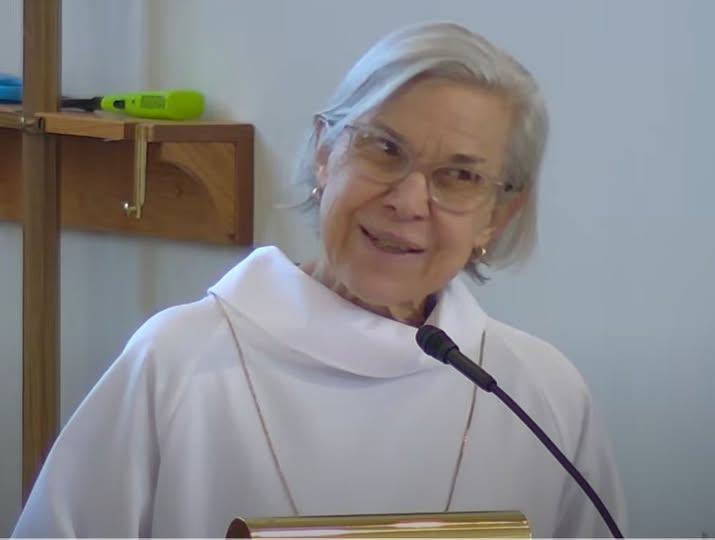The 6th Sunday After Epiphany-Year C
Sunday, February 16, 2025
Regina Berens
In the name of the Father, and of the Son, and of the Holy Spirit. Amen.
“But woe to you who are rich, for you have received your consolation. Woe to you who are full now, for you will be hungry. Woe to you who are laughing now, for you will mourn and weep. Woe to you when all speak well of you, for that is what their ancestors did to the false prophets.”
So… how did you like this morning’s Gospel?
The Beatitudes appear in Matthew and Mark as well as in Luke. But only Luke adds this last paragraph which seems to condemn anyone who’s comfortable here on earth.
Maybe you don’t think you’re rich, but here are a few statistics. (You know I’m a numbers person.)
If you have a college degree that’s something that 93% of the world population does not have.
If your income is over $50/day you’re also doing better than 93% of the world.
Only 15% of the world’s population owns a motor vehicle.
And, if your net worth is over $10,000, your net worth is higher than 71% of the world’s population.
We don’t need to look to developing countries to realize how rich we are. Talk to our church members who volunteer at Heart n Hand right here in Belton.
When I once asked my son, the devout evangelical Christian, about his process for making decisions on stewardship, he said to start with reading everything in the Bible on the subject of money. Money, as in minted coins, wasn’t a thing till relatively late in Biblical times, but “rich” and “riches” are mentioned over 250 times. Clearly others have struggled with this question.
I have to confess that I just turned in my pledge card without reading them all.
We can certainly interpret Luke’s harsh words for the rich as applying to people who worship wealth, to the exclusion of everything else. The first reading from Jeremiah warns us against “trusting in mere mortals”. The Gospel of Luke is known for showing us how God is turning things upside down. Mary, in the Magnificat, reminds us that God has lifted up the lowly, scattered the proud and cast down the mighty from their thrones. Luke’s gospel is generally directed at the poor, the oppressed and the suffering.
Later, Luke (and only Luke’s gospel) tells the story of the rich man and Lazarus. While the rich man enjoys sumptuous meals, Lazarus lies outside the gates, hoping for a few crumbs from his table.
We all know how that ends for the rich man after he dies. But Luke’s words can also be a source of comfort for whatever you’re enduring now- and most of us are enduring something even if we have access to a clean water supply and indoor plumbing. There are things we can do in this world to store up treasures in heaven. Later in this chapter, Luke continues,
“ But to you who are listening I say: Love your enemies, do good to those who hate you, 28 bless those who curse you, pray for those who mistreat you… Do to others as you would have them do to you.
He even repeats, “But love your enemies, do good to them, and lend to them without expecting to get anything back. Then your reward will be great, and you will be children of the Most High, because he is kind to the ungrateful and wicked. 36 Be merciful, just as your Father is merciful.
There were some profound 21st– century instructions in how to do this last month in two services at the National Cathedral.
The first was Jimmy Carter’s funeral. As I listened to the eulogies and in particular to Rev. Andrew Young’s homily, I realized that Carter was truly a man who lived out the Gospel. Carter was an early civil rights advocate. In those days Young, as a black man, was terrified to travel through Sumter County, where Carter lived, because of the sheriff, who Young said was “the most evil man I ever met”. Carter’s response was “Yes, he’s a good friend of mine”. I’m sure it wasn’t because Carter agreed with the sheriff on civil rights- but he was capable of loving even those who disagreed with him.
One Jimmy Carter quote widely-circulated after his death: “I have one life and one chance to make it count for something. I’m free to choose that something … my faith demands that I do whatever I can, wherever I can, whenever I can, for as long as I can.”
My new WWJD acronym is “What would Jimmy Do?”
And then there was the 2025 version of a section of the Beatitudes by the Right Reverend Marian Edgar Budde, Bishop of Washington, DC, at the interfaith prayer service the day after the inauguration, elaborating on what mercy entailed in these times, especially for those who were scared for their lives and their futures in this country. I don’t need to repeat it here- it’s been all over the media including re-posts on FaceBook from people outside of organized religion and even people AGAINST organized religion. I’ve never been so proud to be an Episcopalian. She truly did preach the Good News.
And we can, too- by what we say but more importantly, by what we do.
Amen.


